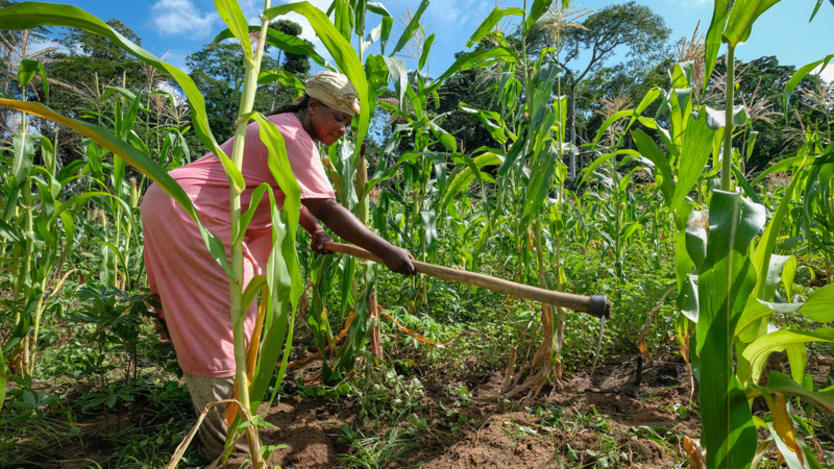Opinion: How women can transform African agriculture — and the economy

Over half of Africa’s farmers are women. They could be our next generation of entrepreneurs, driving the agricultural revolution our continent needs to feed its growing population and boost its economies.
But this will not happen without radical changes to our land ownership and financial systems. Women do the most work on our farms, but have the fewest rights. The majority of them are not able to own land or access financial services, which means they can’t use their plots to secure loans and invest in improvements such as irrigation and machinery. They are shut out of the markets in which they might flourish.
This is obviously unfair to women, but it’s also holding our economies back. This is a key message from our latest report, launching this week at the World Bank’s Annual Meetings. Drawing on comprehensive data and analysis from across the continent, we argue that Africa’s current agricultural policies are preventing us from realizing farming’s vast economic potential.
We have more than half the world’s uncultivated arable land in Africa and a diverse climate well suited to farming, yet we spend $68 billion a year on food imports — a figure that is rising. It doesn’t need to be like this. If we create the economic conditions for farmers — including women — to operate as business people, we can feed not only our own people, but the rest of the world too.
Indeed, women lie at the heart of this transformative agenda. Getting them access to land and finance could double the number of small farmers with the potential to become thriving business people, and would benefit the wider economy via more affordable food and increased disposable income.
Empowering women would not just create more farming entrepreneurs, but a different type. In Zimbabwe, research has shown that men tend to prioritize maize as a cash crop, while women — who cook more often and take taste into account — plant a wider range of crops and get them to market. Similarly, involving women in plant breeding in Rwanda and parts of West Africa has improved the diversity and performance of bean varieties. By encouraging women to participate in agriculture as a business, we stimulate the wider agricultural economy.
In order to realize the significant latent potential on this continent for a transformative agricultural revolution, tools for small-scale commercial farming should be marketed at women in ways they can understand. For example, using pictures in areas where girls tend not to go to school has led to increased uptake of new technology. Women should be able to own the same size plots of land as men, and access loans tailored to the things they tend to farm. Where they cannot access loans, seed varieties that do not need fertilizer — and therefore cash — should be made available.
Our policies must be flexible, because there are so many diverse environments across Africa’s economies and farms. A female smallholder in Ghana does not face the same challenges or opportunities as her sister in Zimbabwe or the DRC. But across the board, we must recognize that Africa’s female farmers currently produce less than their male counterparts not because they are less able, but because our policies and business practices exclude them. We can and we must reverse this trend, for the sake of the whole continent.
The changes we recommend make good social policies too. Empowering women as commercial farmers will mean they can access more land, grow more crops, and put more money into the economy. This will benefit everyone, from the husbands and children of the women empowered, to the people employed in marketing and distributing their produce, to the everyday consumer and citizen who benefits from cheaper, better food and a thriving African economy.
Join the Devex community and access more in-depth analysis, breaking news and business advice — and a host of other services — on international development, humanitarian aid and global health.
Search for articles
Most Read
- 1
- 2
- 3
- 4
- 5








